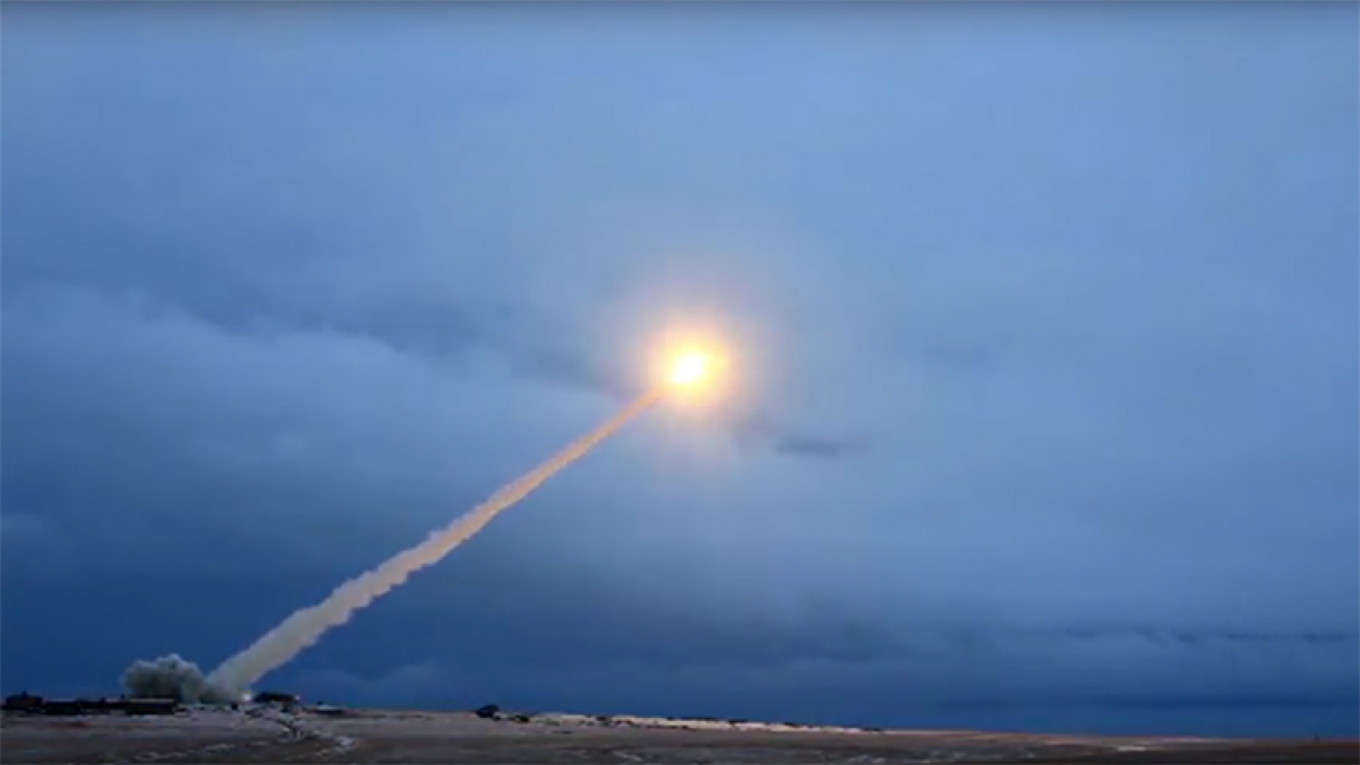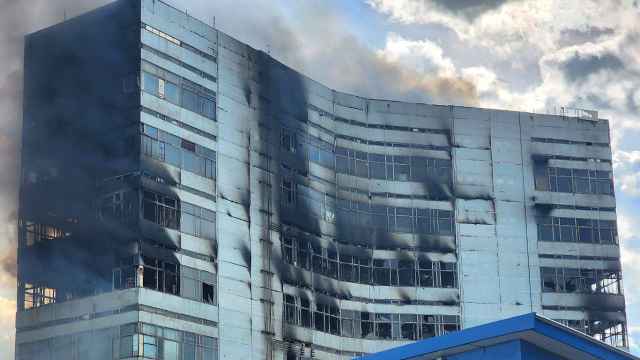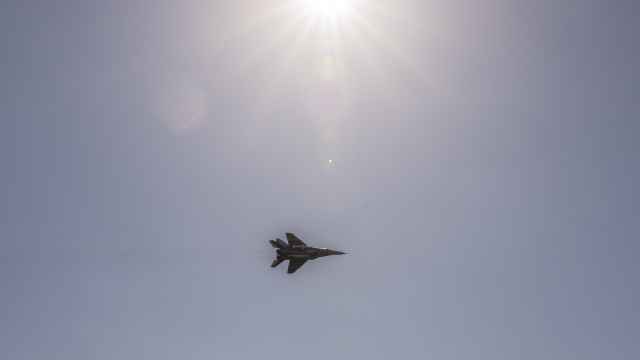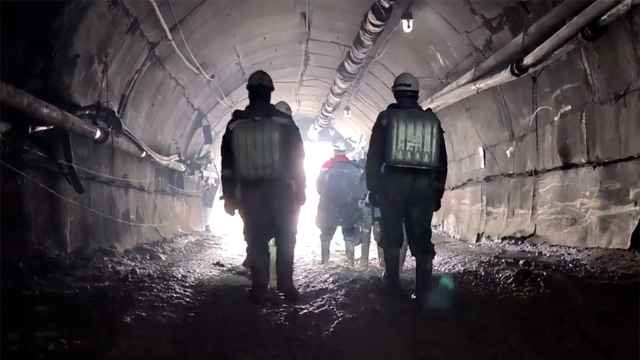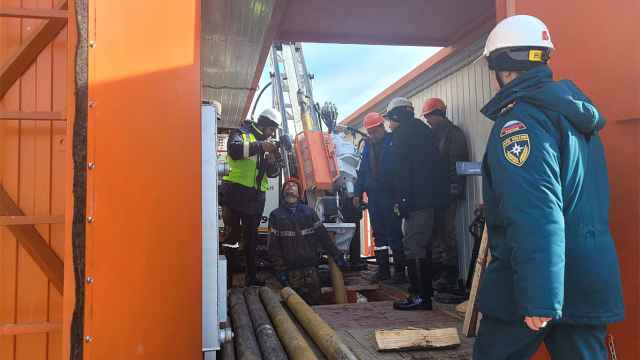Russia's state weather agency said on Monday it had found the radioactive isotopes of strontium, barium and lanthanum in test samples after a mysterious accident during a test at a military site earlier this month.
The deadly accident on Aug. 8 caused a brief rise in radiation levels in the nearby city of Severodvinsk. President Vladimir Putin later said the mishap occurred during testing of what he called promising new weapons systems.
A cloud of inert radioactive gases formed as a result of the isotopes' decay and caused the brief spike in radiation in Severodvinsk, the weather agency said in a statement.
The isotopes were Strontium-91, Barium-139, Barium-140 and Lanthanum-140, which have half-lives of 9.3 hours, 83 minutes, 12.8 days and 40 hours respectively, it said.
Russia's state nuclear agency has said five of its staff members were killed and three injured in a blast during a rocket test on a sea platform that involved "isotope power sources."
U.S.-based nuclear experts suspect the incident occurred during tests of a nuclear-powered cruise missile.
Norway's nuclear test-ban monitor said on Friday that the explosion that killed the scientists was followed by a second blast two hours later and that this was the likely source of a spike in radiation.
The second explosion was probably from an airborne rocket powered by radioactive fuel, the Norsar agency said — though the governor of Russia's Arkhangelsk region, where the blast took place, dismissed reports of another blast.
A Message from The Moscow Times:
Dear readers,
We are facing unprecedented challenges. Russia's Prosecutor General's Office has designated The Moscow Times as an "undesirable" organization, criminalizing our work and putting our staff at risk of prosecution. This follows our earlier unjust labeling as a "foreign agent."
These actions are direct attempts to silence independent journalism in Russia. The authorities claim our work "discredits the decisions of the Russian leadership." We see things differently: we strive to provide accurate, unbiased reporting on Russia.
We, the journalists of The Moscow Times, refuse to be silenced. But to continue our work, we need your help.
Your support, no matter how small, makes a world of difference. If you can, please support us monthly starting from just $2. It's quick to set up, and every contribution makes a significant impact.
By supporting The Moscow Times, you're defending open, independent journalism in the face of repression. Thank you for standing with us.
Remind me later.



